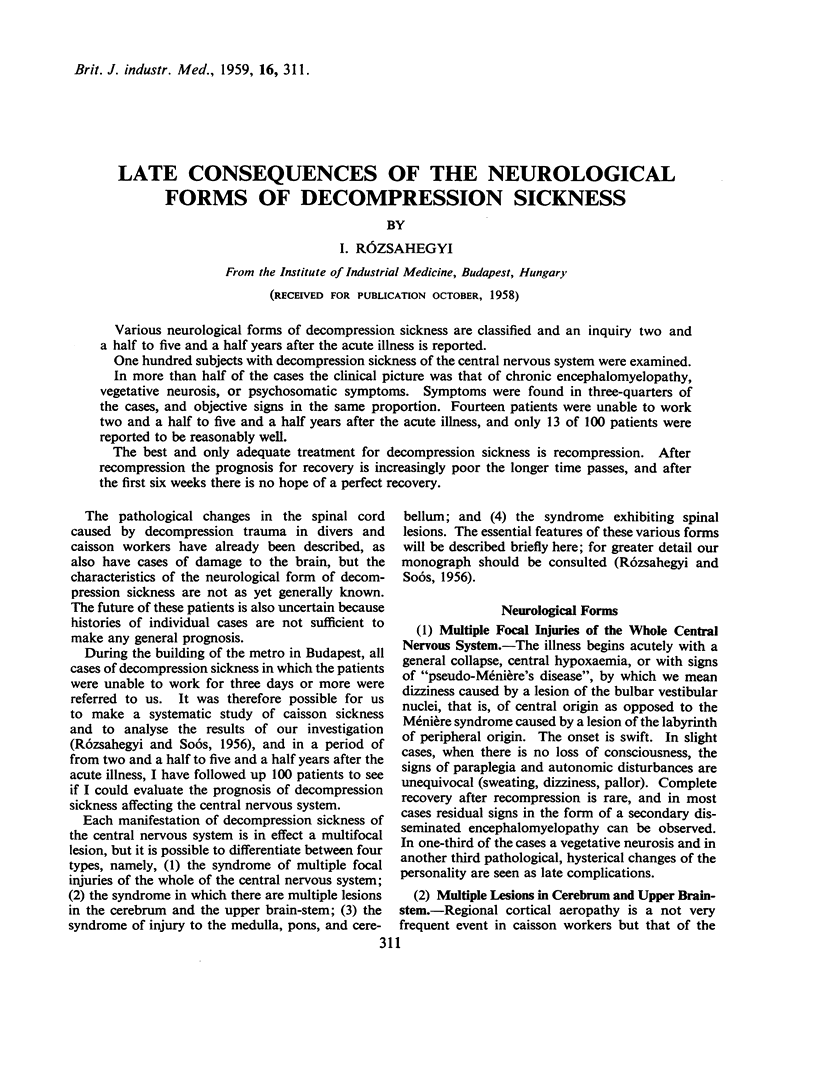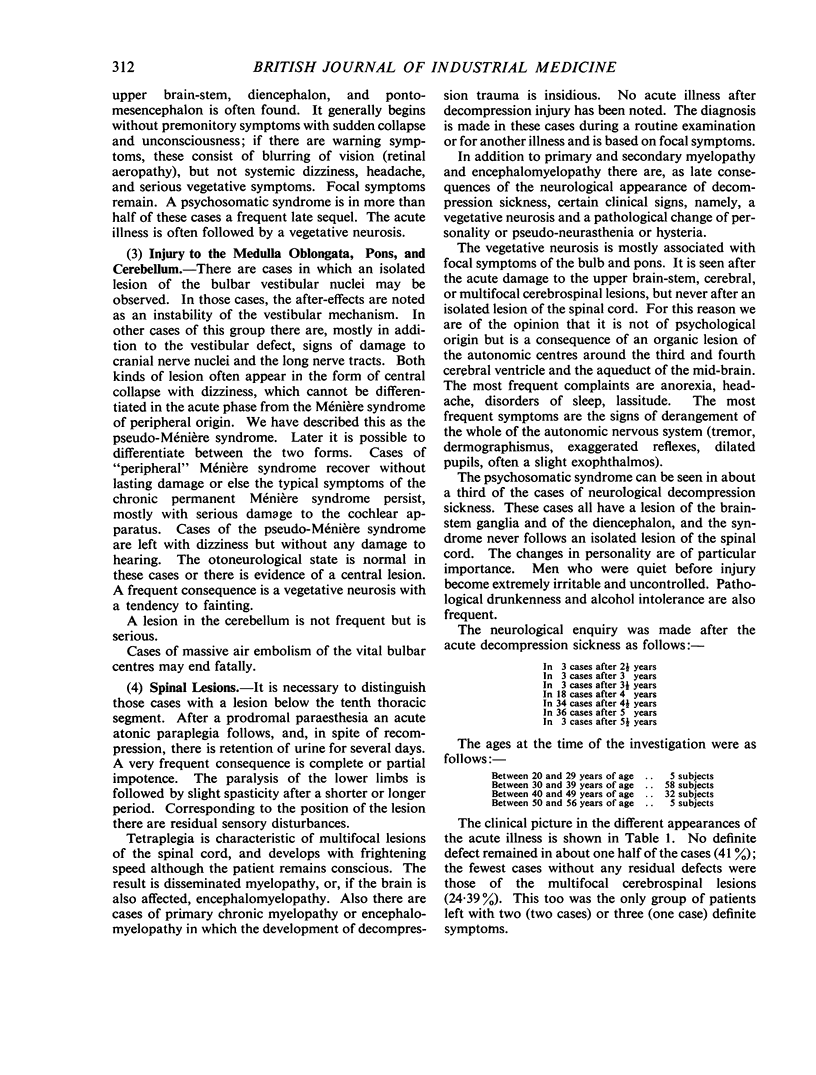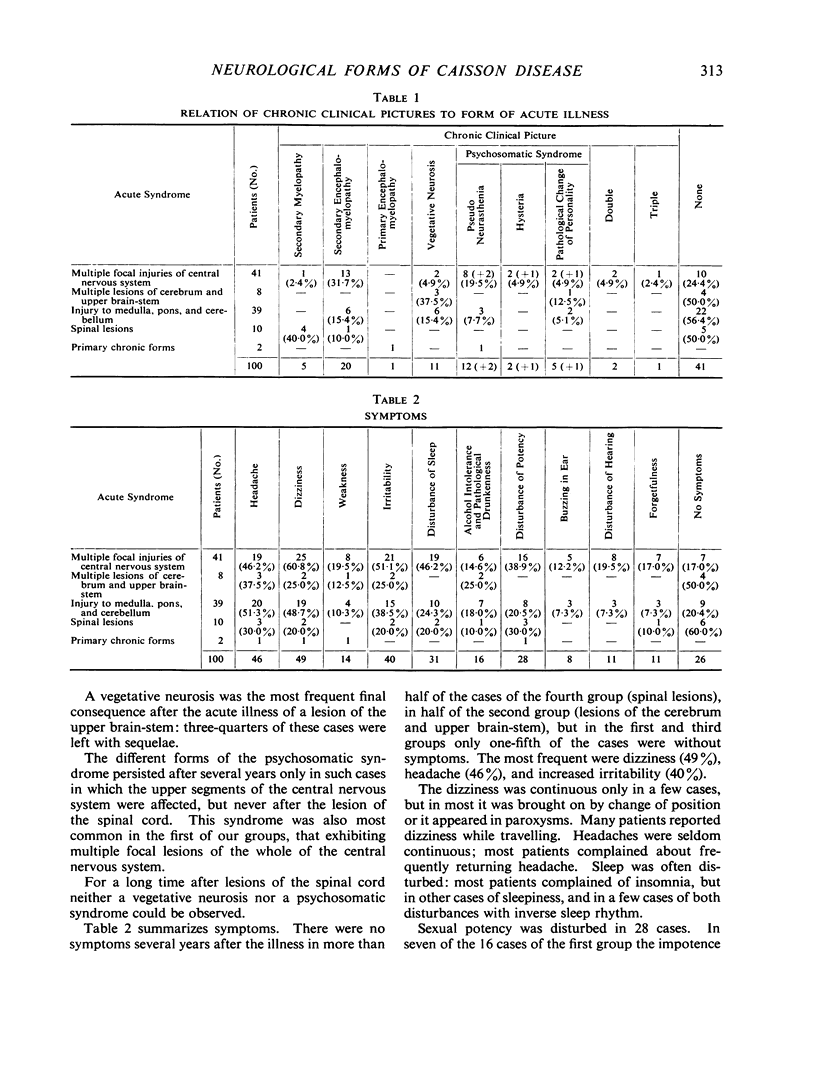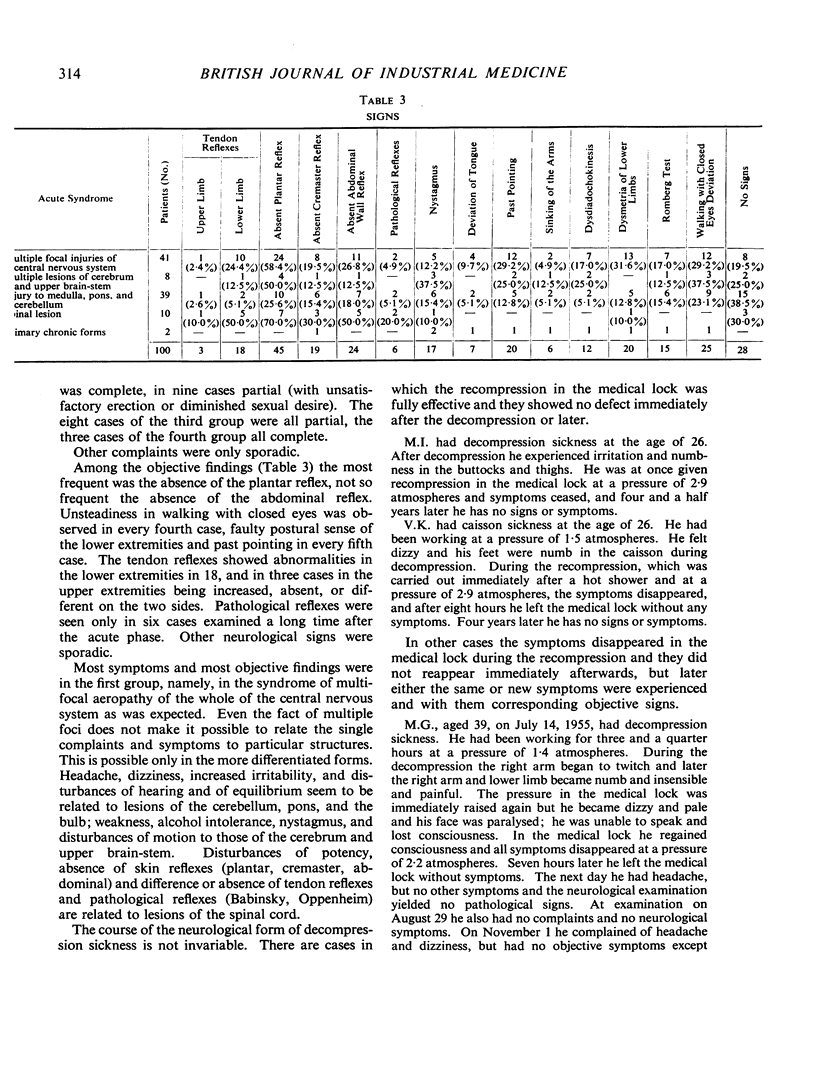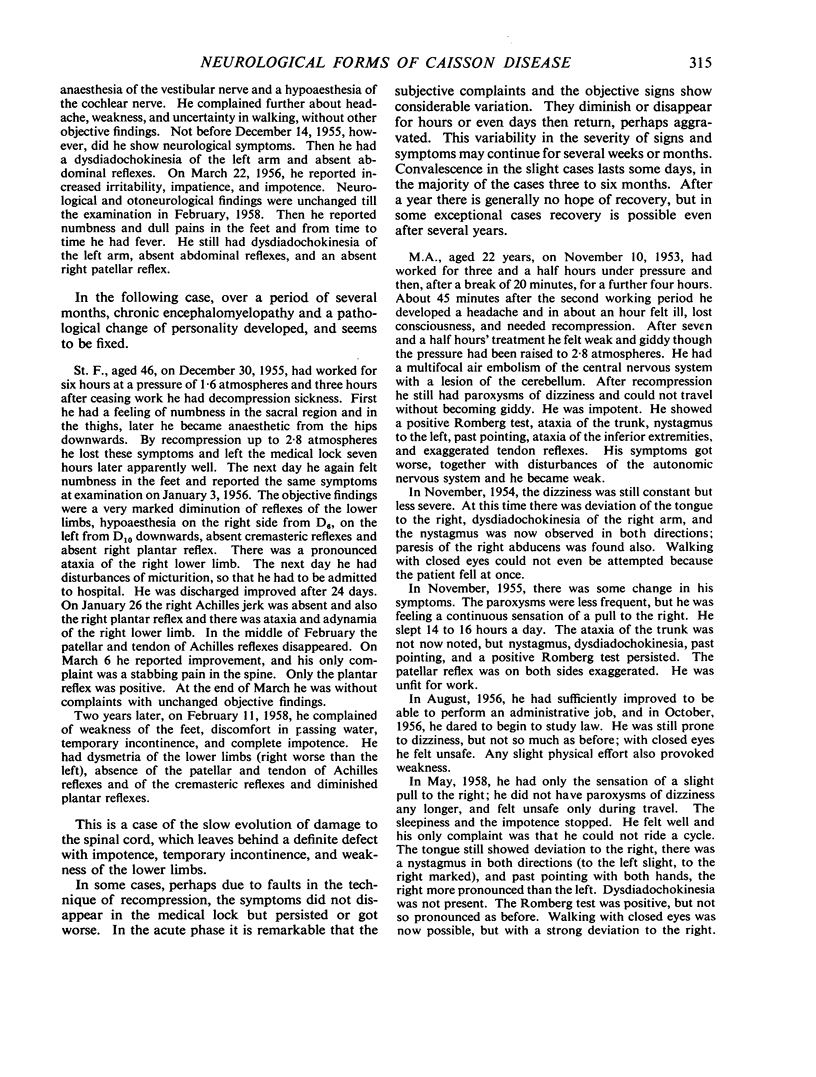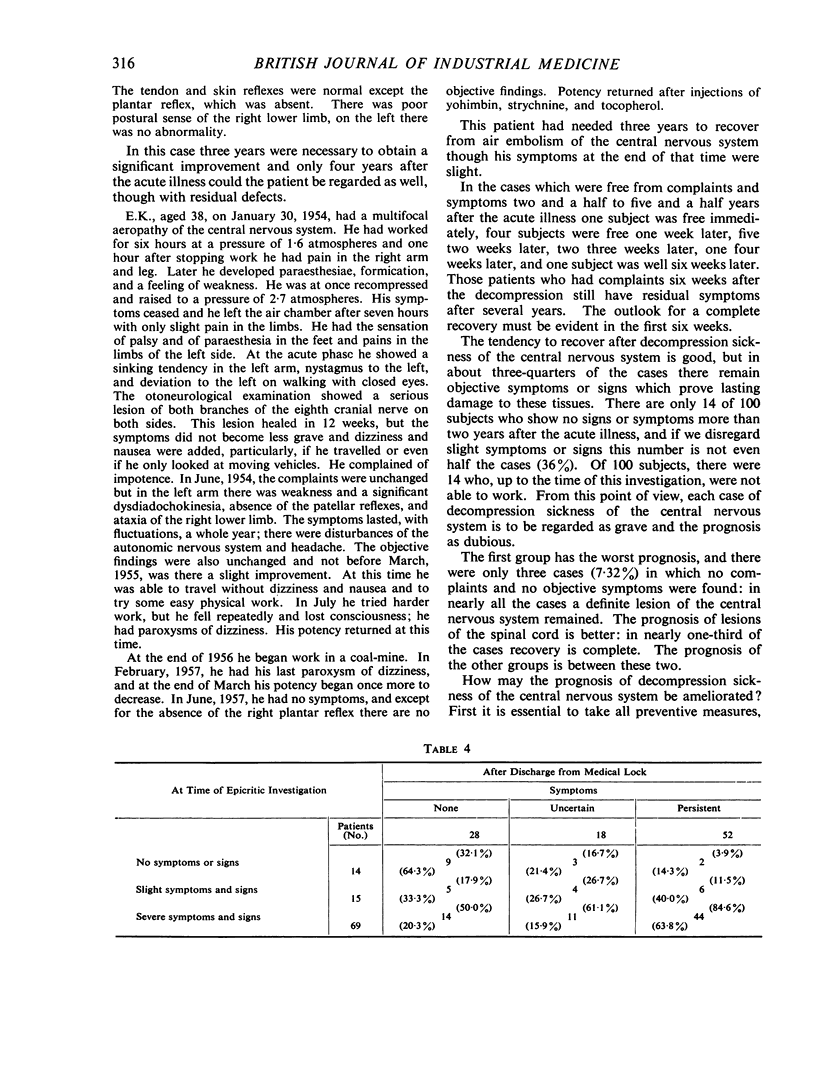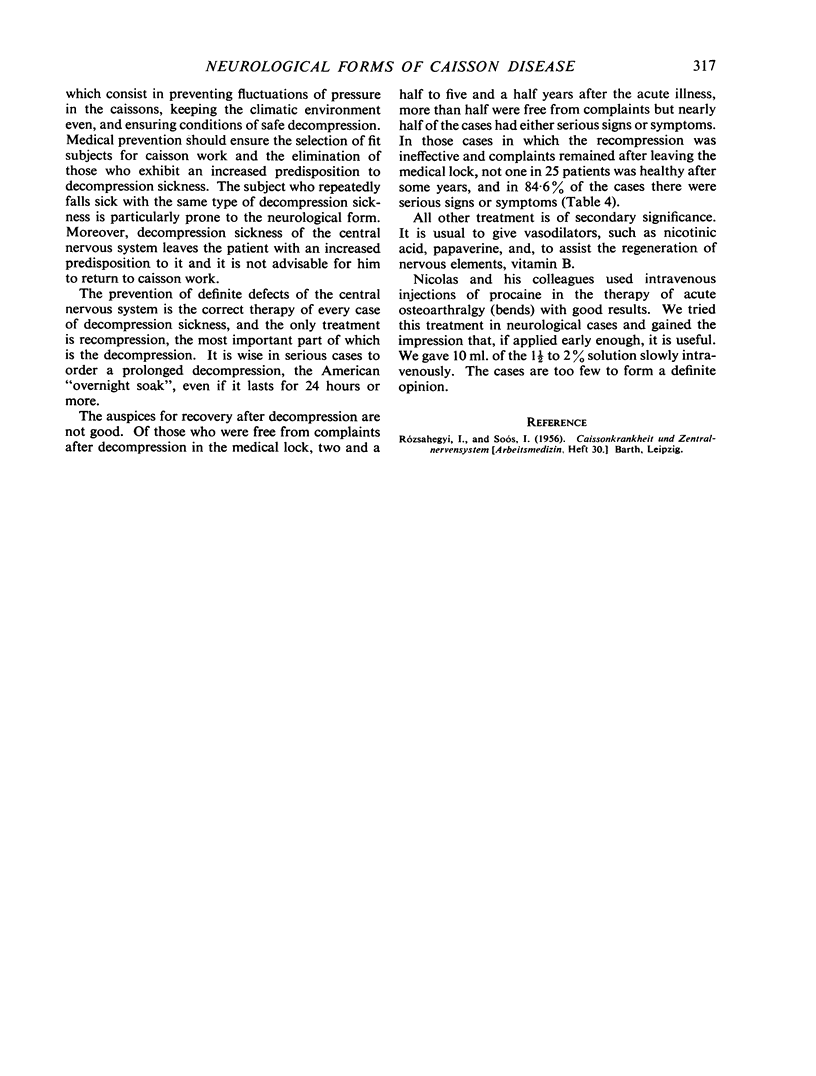Abstract
Various neurological forms of decompression sickness are classified and an inquiry two and a half to five and a half years after the acute illness is reported.
One hundred subjects with decompression sickness of the central nervous system were examined.
In more than half of the cases the clinical picture was that of chronic encephalomyelopathy, vegetative neurosis, or psychosomatic symptoms. Symptoms were found in three-quarters of the cases, and objective signs in the same proportion. Fourteen patients were unable to work two and a half to five and a half years after the acute illness, and only 13 of 100 patients were reported to be reasonably well.
The best and only adequate treatment for decompression sickness is recompression. After recompression the prognosis for recovery is increasingly poor the longer time passes, and after the first six weeks there is no hope of a perfect recovery.
Full text
PDF